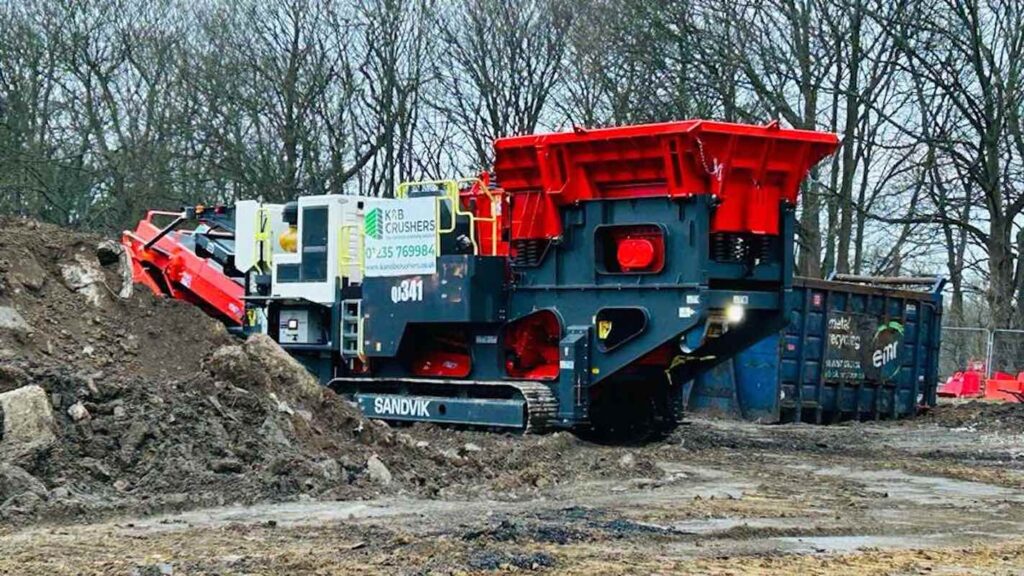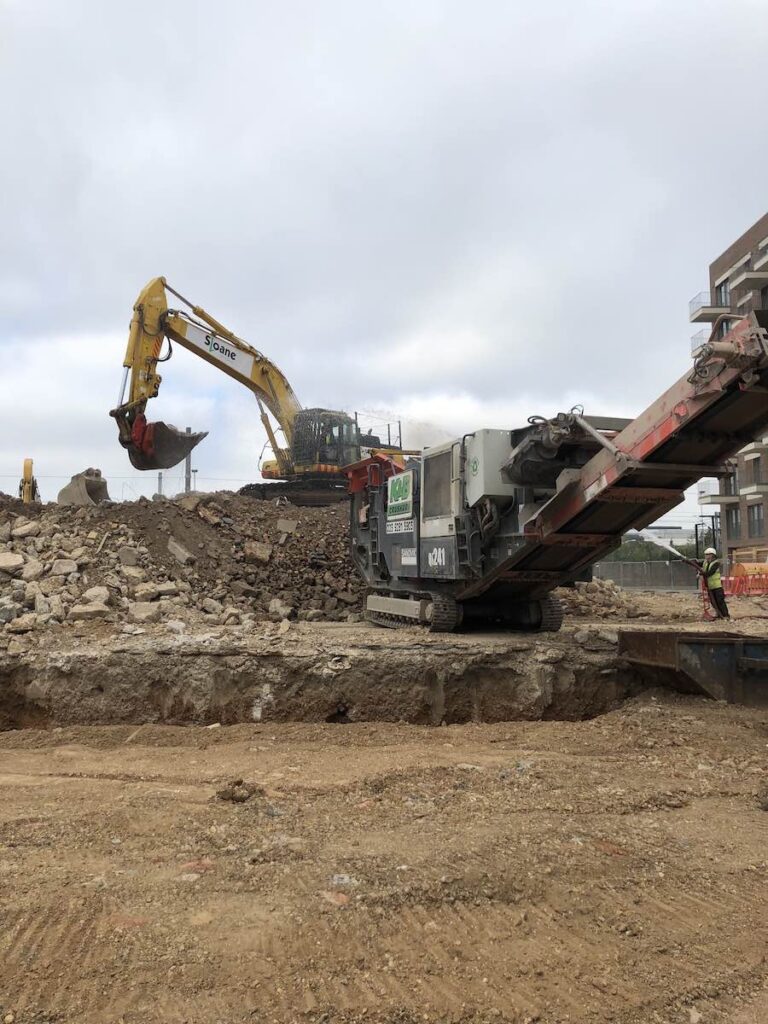Awarding Body:
National Plant Operators Registration Scheme – NPORS
Training course type:
On-site training and assessment, On-site Experience Worker Test (EWT) assessment only
Novice training course duration:
1-5 days dependant on any previous experience
Novice candidate numbers:
3 Candidates
Experience Worker Tests per day:
3 Candidates
Variations:
Tracked
Card options:
5-year NPORS traditional card & certificate, 2-year CSCS trained operator red card (NVQ Required)
Minimum age:
16
Restrictions:
If required
Instructor: D Feely
Concrete crushers are an important part of most construction projects and aggregate production operations. They play a vital role in both industries by crushing large chunks of concrete and aggregate into smaller pieces that can be used in other application and come in a variety of sizes and configurations, but all of them serve the same purpose of breaking down large chunks of concrete and aggregate for reuse on site.
Concrete crushers can provide additional value to companies as they enable a process that has a lower environmental impact and improved cost efficiency.
- Demolition: Crushers can be used to rush materials from demolish buildings and other structures.
- Recycling: Crushers can be used to recycle materials such as concrete, asphalt, and brick.
- Road Construction: Crushers can be used to create road base material.
- Have a basic understanding of the industry, the dangers of working in the industry and their responsibilities as a plant operator.
- Have a working knowledge of a manufacture’s handbook for the machine to be used.
- Be able to locate and identify how the major components of the machine and explain their functions.
- Be able to locate and identify how to use the remote control.
- Conduct all pre-operational checks in accordance with manufacturers and legislative requirements.
- Identify and maintain appropriate PPE.
- Safe mount and dismount crusher.
- Start and stop engine, belts, feeder, jaws/hammer safely.
- Configure the machine for travel and manoeuvre it safely across varying terrain.
- Conduct all necessary safety checks at the work area.
- Explain the different types of crushers, the advantages, and disadvantages of using and how they crush the desired material.
- Carry out an emergency stop / safety precaution.
- Carry out crushing tasks.
- Demonstrate knowledge and understanding of loading and unloading procedures for crusher transportation.
- Environmental considerations.
- Carrying out all end of shift and shut down procedures.
- Suitable and safe area to operate machine.
- Varying terrain and slopes.
- Crush suitable material to load into crusher.
- Machine and trained operator to load crusher.
- Suitable and safe area to complete paperwork.
- Suitable welfare facilities.
- Crusher.
- Operators’ manual.
- Risk assessment completed.
- Suitable head protection.
- Suitable eye protection.
- Suitable hearing protection.
- Suitable work clothes.
- Suitable work Gloves.
- Suitable work boots including steel toe protection.
- High Viz.
- Avoiding danger from overhead power cables guidance GS6 https://www.hse.gov.uk/pubns/gs6.pdf
- Avoiding danger from underground services HSG47 https://www.hse.gov.uk/pubns/priced/hsg47.pdf
- PUWER Regulation
- https://www.hse.gov.uk/pubns/priced/l22.pdf
- LOLER Regulations
- https://www.hse.gov.uk/pubns/books/l113.htm
- 20 multiple choice questions.
- 5 written questions.
- 4 marks per question.
- 80% pass mark required.
- Pre use and operational checks.
- Travel crusher 30 metres over varying terrain (mobile only).
- Travel crusher through restrictions.
- Set crusher for work processing duties.
- There must be suitable and sufficient material for processing and excavator to load.
- Crush material from a stockpile to 75% of discharge belt height.
- Carry out emergency stop while crushing.
- Pass mark is less than 20 penalty points and no mandatory disqualifications.
- Time allowed is 1 hour 15 minutes.
Accordion Content


